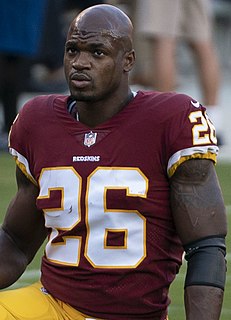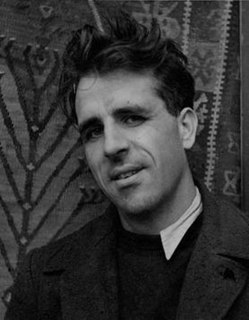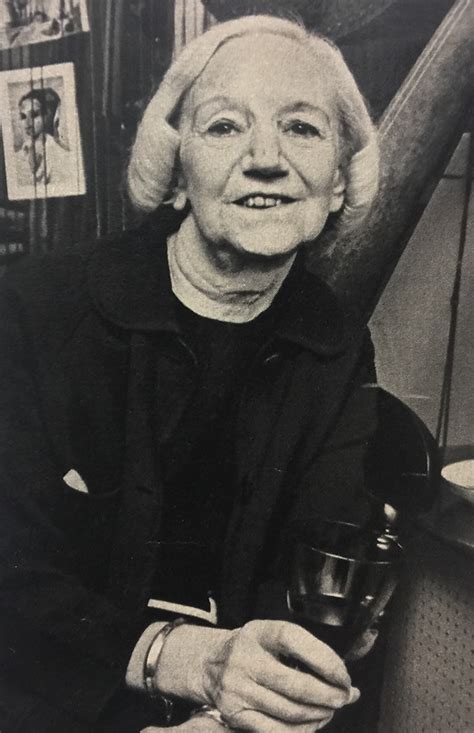A Quote by Charles Dickens
He wore a sprinkling of powder upon his head, as if to make himself look benevolent; but if that were his purpose, he would perhaps have done better to powder his countenance also, for there was something in its very wrinkles, and in his cold restless eye, which seemed to tell of cunning that would announce itself in spite of him.
Related Quotes
Amid the worry of a self- condemnatory soliloquy, his demeanour seemed grave, perhaps cold, both to me and his mother. And yet there was no bad feeling, no malice, no rancour, no littleness in his countenance, beautiful with a man's best beauty, even in its depression. When I placed his chair at the table, which I hastened to do, anticipating the servant, and when I handed him his tea, which I did with trembling care, he said: "Thank you, Lucy," in as kindly a tone of his full pleasant voice as ever my ear welcomed.
I discovered several never-failing signs by which one might know when a man wished to take another wife. He would suddenly 'awaken to a sense of his duties'; he would have serious misgiving as to whether the Lord would pardon his neglect in not living up to his privileges; he would become very religious, and would attend to his meetings ... which seemed just then to be very numerous, and in various other ways he would show his anxiety to live up to his religion.
It's too early for there to be any coffee. I stare dully at the empty pot in the common room, while Sam picks up a jar of instant grounds. "Don't," I warn him. He scoops up a heaping spoonful and, heedlessly, shovels it into his mouth. It crunches horribly. Then his eyes go wide. "Dry," he croaks. "Tongue...shriveling." I shake my head, picking up the jar. "It's dehydrated. You're supposed to add water. Good thing you're mostly made of water." He tries to say something. Brown powder dusts his shirt. "Also," I tell him, "that's decaf.
When a man sought knowledge, it would not be long before it could be seen in his humbleness, his sight, upon his tongue and his hands, in his prayer, in his speech and in his disinterest (zuhd) in worldly allurements. And a man would acquire a portion of knowledge and put it into practice, and it would be better for him than the world and all it contains - if he owned it he would give it in exchange for the hereafter.
When he at least reached the door the handle had cease to vibrate. Lowering himself suddenly to his knees he placed his head and the vagaries of his left eye (which was for ever trying to dash up and down the vertical surface of the door), he was able by dint of concentration to observe, within three inches of his keyholed eye, an eye which was not his, being not only of a different colour to his own iron marble, but being, which is more convincing, on the other side of the door.
Strange is the vigour in a brave man's soul. The strength of his spirit and his irresistible power, the greatness of his heart and the height of his condition, his mighty confidence and contempt of danger, his true security and repose in himself, his liberty to dare and do what he pleaseth, his alacrity in the midst of fears, his invincible temper, are advantages which make him master of fortune.
What a wee little part of a person's life are his acts and his words! His real life is led in his head, and is known to none but himself. All day long, the mill of his brain is grinding, and his thoughts, not those of other things, are his history. These are his life, and they are not written. Everyday would make a whole book of 80,000 words -- 365 books a year. Biographies are but the clothes and buttons of the man -- the biography of the man himself cannot be written.
If you saw Atlas, the giant who holds the world on his shoulders, if you saw that he stood, blood running down his chest, his knees buckling, his arms trembling but still trying to hold the world aloft with the last of his strength, and the greater his effort the heavier the world bore down upon his shoulders - What would you tell him?" I…don't know. What…could he do? What would you tell him?" To shrug.
The man has a curious inborn conviction of his own superiority which is quite unshakeable. All his life he has bullied and browbeaten those around him by his high-and-mightiness and his atrocious temper. As a boy he terrorized his entire family by his tantrums, when, if thwarted, he would throw himself on the floor and yell till he went blue in the face. It has been much the same ever since. Everyone's terrified of his rages. He has only to start grinding his teeth, and people fall flat before him.
When anyone is going wrong, it is a mistake to warn him not to go further. It is also a mistake to leave him alone. The proper course is to call his attention to something better, and frame our conversation in such a way that he becomes wholly absorbed in the better. He will then forget his old mistakes, his old faults and his old desires, and will give all his life and power to the building of that better which has engaged his new interest.
But might not his [the president's] nomination be overruled? I grant it might, yet this could only be to make place for another nomination by himself. The person ultimately appointed must be object of his preference, though perhaps not in the first degree. It is also not very probable that his nomination would often be overruled.






































